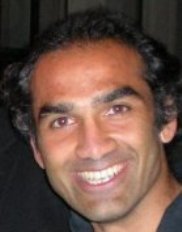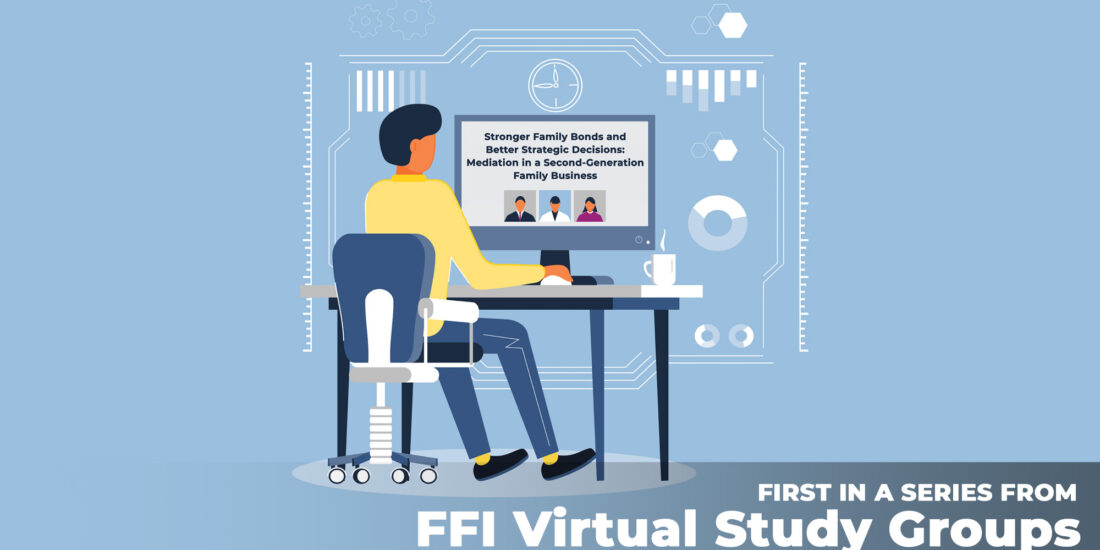Fighting for the Crown: The father/son relationship in first generation family enterprises
This week the Practitioner features an article by Moveed Fazail, Founder & President of International Family Business Group (IFBG), on the age-old topic of father/son relationships in first generation family enterprises. Using the Brad Pitt and Anthony Hopkins 1994 film Legends of the Fall as a frame of reference, Moveed explores how advisors can bridge gaps and help manage the understandable points of conflict in this very common scenario.
Fighting for the Crown
Moveed Fazail
I still get goose bumps remembering Brad Pitt with those long blonde locks riding his horse, music in the background returning to his family home (and business) in the movie Legends of the Falls. The scene had everyone in the cinema wailing — the prodigal son returning to the family fold and the father, who has waited patiently for many years, graciously forgiving his wayward son and welcoming him back to the family.
As much as we sometimes want real life to have a Hollywood ending, in most cases we do not get a fairy tale finish. In fact, the end in family businesses is often sad and destructive. The question that is posed in this brief article is:
Can father-son relationships be as loving and forgiving as those depicted in the movie Legends of the Fall or will they be combative, competitive and bitter battles that lead to the demise of a successful business empire.
This article is not intended to provide a definitive road map that explicitly outlines strategies to resolve the complicated father-son relationship. The family dynamics are unique in every family and to have a one-size-fits-all model is not realistic. The objective here is to identify the trigger points that can lead to a combustive father-son dynamic, better understand the personalities, motivations and behaviors of the two protagonists and discuss how, as advisors, we can help create an environment of open communication, respect and appreciation for both individuals’ achievements and talents.
Family businesses often resemble monarchies where battle is waged between the old king who is not yet ready to give up power and the young prince who feels it is his time to lead. Fighting for the crown is a convenient label to describe this phenomenon but underlying it are real battles for control and autonomy, freedom and power, and the ambition to be numero uno.
The founder of a company is often described as being relentless, aggressive, determined, egomaniacal, secretive, and narcissistic — with a strong, domineering personality that cannot and will not accept opposition in any form, especially if it is by his own blood. It is critical to explore this last statement if we want to better understand the complex father-son relationship and dig deeper to unmask the “man” referred to as the founder. In understanding what drives this man by looking at his origins, interests, fears, methods and goals, we may get a better gauge of the personality of the father.
A good, intelligent starting point is to look at the family business and what it means to the father. The family business is a source of personal identity, pride, legacy, opportunity and means of providing for the larger family. The father often comes from humble beginnings, or in some cases, helps to re establish the business after it has suffered heavy losses. He has dedicated his adult life to creating something of value, toiled hard and long to get that first break. He has committed to hard work and sometimes a “winning at all costs” philosophy. Most importantly he has sacrificed a great deal in his personal life to build a platform from which future generations can launch their own careers (inside or outside the family business). We often hear great stories of individuals who, with nothing in their pockets, have managed to build business empires. How as young adults they had to walk to school, share the same room with their many siblings, skip meals or eat the bare minimum so there would be enough for everyone to eat. How in the early part of their careers they had to face rejection, humiliation and abuse, be denied opportunities because of their not-so-famous last name or not have the wealth, education or prestige necessary to be part of the top tier of society.
If we make a sincere attempt to study the father’s origins then perhaps adjectives like aggressive, driven, relentless, dictatorial do not sound as threatening and one gets some sense of relief of what drives the father’s behavior. Learning about the father’s beginnings makes it easier to understand how a patriarch feels when the ‘heir apparent’ fights him tooth and nail to push a modernistic agenda. The father’s reaction — stalling, criticizing, rejecting and bulldozing any plans to change the order of the ‘kingdom’ may then be considered natural. Instinctively the father defends what is his first and sees efforts for change as a pretense to take over, a “mutiny” if you will, that must be quashed at all costs. The fact that the rebellion is led by his flesh and blood amplifies the threats and therefore the reaction is even more forceful.
Fathers do not normally wish ill for their children but they can fear being diminished by them. Imagine that the boy who once looked up to the father as all powerful and all wise, becomes faster, stronger and smarter. The required transition is a difficult one.
Also many individuals in the father’s generation have witnessed the rapid decline of their contemporaries’ energies when they retire, and they cannot accept a similar fate. The fact is that in most cases the fathers will do everything in their power to remain in control. However, their actions can be understood better through the aforementioned reasoning and wise sons can take the necessary steps to avoid serious conflict. Unfortunately many times sons take their father’s actions personally and the seeds of mutual distrust are sown, with devastating long-term effects.
Let’s turn now to the son, who is intelligent, thoughtful, hard working, qualified and often has ideas, goals and ambitions that are different from his father’s. The young prince is committed to his family, cares deeply for the family business and wants it to do better, but finds the familial relationship difficult to manage. To grow up in the shadow of a huge personality that happens to be your father is not easy and the son can have difficulty expressing his desires and interests openly. The son who has big shoes to fill can feel second best or at times not good enough to be as successful as his father.
As an adult, the son sometimes overcompensates for his childhood unhappiness, and in his quest to prove himself worthy pushes too hard without really knowing the origins of the man, his father. In other cases the son is simply overconfident of his abilities because he has gone to the best business schools and firmly believes he is the bearer of modernization, which in his mind is the key to the long-term sustainability of the business. Inevitably there is a clash of ideas — tradition vs. modernization, change vs. status quo, experience vs. youth and so forth — that sadly diminishes the good intentions of the son and often sends the business a step back rather than moving it forward.
Can this relationship be supported for the betterment of the family and the business instead of causing their downfall? As advisers we must engage both father and son. We need to have an eye for seeing the relationship patterns, use a deft touch to ask the right questions, maintain the interest and motivation to keep challenging the status quo and have the stomach for what is often an explosive, complex and delicate relationship.
We need to recognize the paradoxical nature of this relationship. The father loves his child but does not see him as an equal in the business. The son loves his father but desires to be considered an equal or, in some cases, considers himself better suited to lead. The emphasis is not on the contentious issue of leadership, but on how the two actors can both feel in charge, be respected, and create the space and freedom to express their opinions without fear of reprisal.
Personalities cannot be easily changed but behaviors can be controlled and disciplined so that the two protagonists can learn new behaviors. There are many psychological assessment tools that can be administered to identify danger traits and both parties can learn to control the trigger points that lead to destructive paths. It is often easy for the founder to be dismissive of his son and often with the help of an outside advisor, the father can learn to transform his normal reaction to a more constructive one (process vs. content).
For example, a father is better off saying “Son, I appreciate your efforts and hard work however in this case my preference is to go with Option B. I am proud of your dedication and commitment to this business and am confident that you will continue to lead our team in developing new ideas and opportunities for the long term success of our company” as opposed to “I am the CEO of this company and I know what is right or wrong.” Understanding parenting style (authoritarian vs. authoritative) is another tool that can avoid the feeling of hurt and neglect that children may use to rebel in their adult and professional lives to the detriment of both the family and the business.
Sons need to be educated and coached about diplomacy, negotiation, patience and appreciation of the origins of the fathers. A common theme in todays next generation is the lack of knowledge of the background of the family business, the struggles and sacrifices their fathers made and why, in most cases, their “old man” is not ready to ride off into the sunset. Often conversations between the young man and an outside advisor will help the son to understand his father better — and perhaps even accept a secondary role to the commander-in-chief. He may come to see these years of apprenticeship as invaluable lessons regardless of however long it might take for him to be crowned king. The young blood is eager, aggressive and confident to take on the world, but Rome was not built in a day. Like the corporate world the family firm has CEOs who are demanding, critical, opinionated and tough but with the right coaching and grooming, family firms can start to look less like a Shakespearean drama and instead create successful transitions.
In the end perhaps the father/son relationship in a family business will always be tumultuous, but when both men learn to adapt and accept each other’s abilities, ideas and desire, they can often bring change for the better. Family businesses do not have to be a zero sum game and as advisers we can strive for a middle ground, creating structures and processes where both men learn new behaviors and have the tools to combine their talents to form a winning team – the next gen learns from the old pro and vice versa.
About the Contributor
 Moveed Fazail, founder and president of International Family Business Group (IFBG) www.ifbgconsulting.com, has a BComm from McGill University and an MBA from INSEAD. For more than 15 years, Moveed has worked in the family business sector including his own family’s sales & marketing company that managed 300+ global clients in various sectors including petrochemicals, energy, textile, fertilizer, cement and consumer staples. He has a wealth of knowledge and experience in working with sibling partnerships and cousin conglomerates and supporting families to manage the all important family component in family businesses. Moveed can be reached at moveed.fazail@ifbgconsulting.com.
Moveed Fazail, founder and president of International Family Business Group (IFBG) www.ifbgconsulting.com, has a BComm from McGill University and an MBA from INSEAD. For more than 15 years, Moveed has worked in the family business sector including his own family’s sales & marketing company that managed 300+ global clients in various sectors including petrochemicals, energy, textile, fertilizer, cement and consumer staples. He has a wealth of knowledge and experience in working with sibling partnerships and cousin conglomerates and supporting families to manage the all important family component in family businesses. Moveed can be reached at moveed.fazail@ifbgconsulting.com.
Stay tuned next week for another issue of The Practitioner.
Yours in Practice,
The Practitioner





